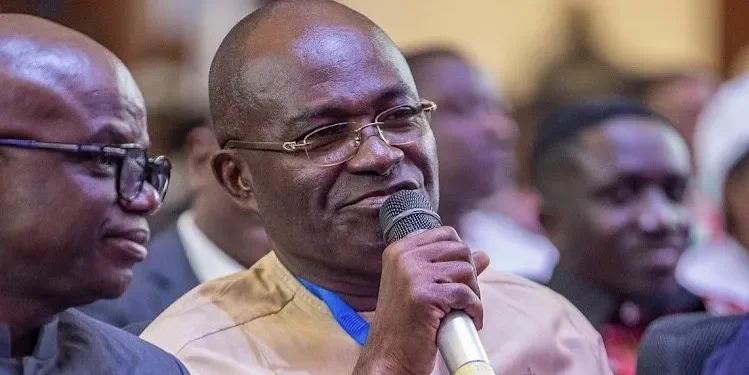There is another “scramble for Africa” by foreign powers about who can best profit from the continent’s business opportunities, with 70% of coverage about business in Africa referencing China, the USA, Russia, France, and the UK, according to the newly launched report by Africa No Filter and AKAS.
‘The Business in Africa Narrative Report’ shows that the keywords, stories, frames, and narratives associated with business on the continent are dangerously distorted. There is an overemphasis on the role of governments, foreign powers, and larger African states alongside an under-appreciation of the role of young people, women, entrepreneurs, creative businesses, smaller successful African states, and Africa’s future potential.
Moky Makura, Executive Director at Africa No Filter, stated that business opportunities in Africa are being misrepresented by the media.

“We wanted to understand why Africa is seen as a high-risk business destination and why the cost of money is at a premium. The report gives us an insight into why. It shows that business opportunities on the continent are both underrepresented and misrepresented, and now that we know this, we can work on educating the media and changing the narrative around business in Africa”.
Moky Makura
Richard Addy, report author and co-founder of award-winning international audience strategy consultancy, AKAS, says “this ground-breaking report offers a detailed data analysis on the narrative around business in Africa”.
“This rigorous research is important because narratives, frames and stories are the lenses through which we perceive and experience Africa. They inform beliefs, behavior and ultimately dictate policy”.
Richard Addy
Other dangerous distortions in stories
In addition to the dominance of foreign powers in business stories, the report highlighted a number of other key frames dominating dangerous distortions played out in stories, and the underrepresentation of businesses across the continent.
The report uncovered more negative coverage. International media is more likely to have a negative tone. African media is twice as likely to reference corruption in its coverage of business in Africa compared to international media, with corruption featuring in 10% of African media stories.
Reportage on African business by the international media is skewed to only few countries. Nearly 50% of articles in global media outlets reference South Africa or Nigeria, crowding out business stars like Mauritius, Namibia, and the Seychelles. Mauritius is the highest-ranking African country in the World Economic Forum’s Global Competitiveness Index.
The report also found that Government, policy, and regulations dominated African business stories published by the international media. According to the report, 54% of business news in 2021 was framed through government action and policies. Additionally, African media focused more on themes related to government than on those related to entrepreneurship. Yet, African countries make up six of the top 10 countries whose populations were most likely to search for the topic of entrepreneurship in 2021.
The African Continental Free Trade Area (AfCFTA) is the largest free trade area in the world by the number of countries taking part, yet it makes up under 1% of business news and analysis while mentions of Foreign Direct Investment fell from 3.2% in 2017 to an even lower 1.9% of coverage in 2021.
The Business in Africa Narrative Report
The Business in Africa Narrative Report is the latest research project by narrative-change organization, Africa No Filter and forms part of their work to understand and shift harmful and stereotypical narratives about Africa.
The report comes at a crucial time for the continent as it recovers from the economic impact of COVID-19. Experts predict that Africa needs an estimated $175 billion per year for 20 years to end extreme poverty, and business will play a critical role.
The report was compiled using eight research approaches to analyze the frames, including big data analysis, sentiment analysis, trends analysis, content analysis, linking analysis, literature reviews, primary surveys, secondary surveys analysis, indices investigation, and social media analysis. The adoption of these approaches saw the analysis of 750 million stories published between 2017 and 2021, on more than 6,000 African news sites and 183,000 sites outside the continent.
READ ALSO: We Cannot Lose Our Guard By Easing COVID-19 Restriction Now- Dr. Amponsah-Achiano






















